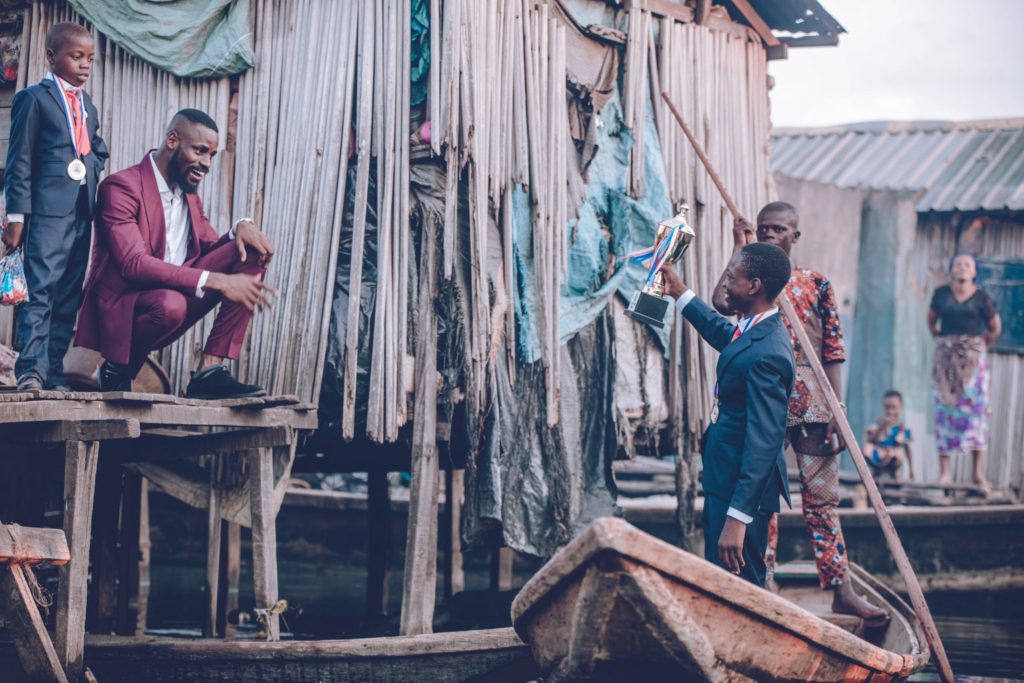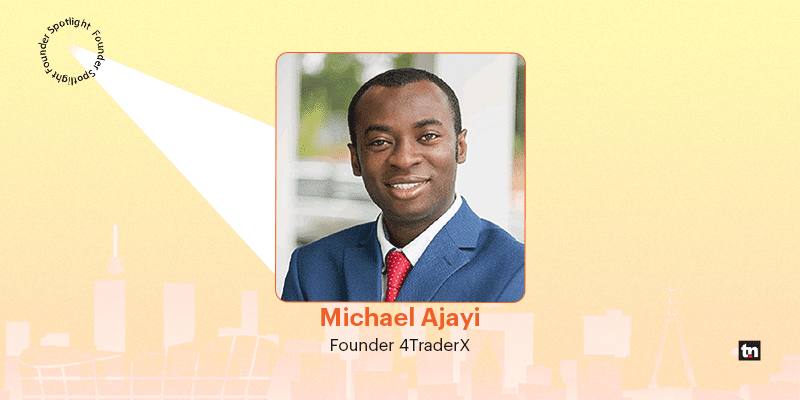In December 2021, images of children in navy trads, and matching fila, lost in thought seated in front of chess boards floated on the internet. It was from the finals of a chess tournament at Oshodi, Lagos. It had been put together by Chess in Slums, a non-profit organisation founded by Tunde Onakoya, to teach underprivileged children how to play chess.
For many on the internet, it was the first time they heard the word “chess in slums.” But Chess in Slums has been making impact for four years, hosting tournaments in slum communities – Oshodi, Makoko, and around Lagos.
The beginning of Chess in Slums
Tunde Onakoya knows all too well what Chess can offer, having been a beneficiary, growing up in Isale-Odo with working-class parents. “There was a point in my life when I couldn’t go to school. I was out of school for a couple of years because my parents couldn’t afford to put me in school at the time,” he said in an exclusive interview with Technext. “It was in that time that I discovered chess…It really saved my life.”
When he started earning a living, working as a professional chess tutor and playing professionally at many tournaments, he looked back years later and saw that the slum communities were still as they were; snubbed by the rest of society. So, he got busy. “We are more inclined to solve the type of problems that we’ve experienced,” he said about starting Chess in Slums.
“I made a decision to do the same thing for other children like me that live in slum communities, and are practically shut out from the world…because poverty has chosen a different path for them. I decided to use chess as a medium to just give them access.”
Chess and the underprivileged children


Access has indeed been given to them. Already, some of the children are on scholarships, and Ferdinand Maumo, the 10-year-old with cerebral palsy who won the tournament held in Makoko earlier in 2021, was invited to play chess with the Lagos governor, Babajide Sanwo-Olu.
“It gave me an opportunity to not just go back to school, but to experience people and places outside the confines of my environment…I want to teach children who otherwise will never get an opportunity to go to school,” Onakoya said about the experience.
In the early days, when Onakoya was still pursuing his first degree at the Yaba College of Technology, he will go as far as Sango Ota to host chess tournaments for underprivileged children. Even then, he wasn’t sure how the children will make use of the skill, how it will help alleviate them from poverty. But he knew deep down that chess could create access for them.
Creating a new narrative for the underpriviledged children
His plan was to create a new narrative for children in slum communities. He knew from his own experience that people will respect them for their intellectual capacities regardless of their upbringing.


“I didn’t know how it will change their lives or put food on the table,” he said about those days. “And now, it has become this revolutionary project that is creating something deeply impactful in the lives of these children.”
On material validation
Long before the fame, Onakoya didn’t start Chess in Slum for the well-deserved validation that has come with it, including being featured on the BBC in 2019 and winning a Future Award for Community Impact. Material validation is not what he’s about.
“It does feel good to be recognised,” he said. He quickly added that “the greatest validation will be our impact story. It’s our metric to measure progress. Being able to put them [the children] on scholarships.” This is also largely because of his lodestar, his guiding principle, the Ubuntu philosophy, being self through others.
“We live in a world where people glorify frivolous things,” he said. “My own idea of success is in the African philosophy Ubuntu. It’s in the success of others… In being a conduit, and helping other people attain success by paying forward the privilege I have.”
Onakoya is optimistic about the future of, as he likes to put it “paying forward”, in the modern world. “People see the importance of kindness, the importance of extending help to those that suffer the most in our society.”
Chess in Nigeria?


While the work of Chess in Slums has been instrumental in reviving chess in Nigeria, Onakoya recognises the obstacles that still make chess a niche affair.
“There is a lot of gatekeeping even by the professionals. They just want to keep it in the elite community,” he said. “You don’t have to be a professional chess player or be a master. That takes a lifetime of dedication, and that is why you hear people say ‘chess is boring,’ or ‘it’s too difficult.’ You can just learn it as a fun activity. That is how we can make chess accessible to everyone.”
He added that people also need to do the work of “understand their place in it and what they can do with it.”
The future of Chess in Slums
It seems like Onakoya has finally arrived, that the work he has been doing is finally paying off. But he has even bigger dreams of building “the biggest chess academy in the world for children in impoverished communities, for orphans to not just learn chess, but learn important life skills for the future of work.” His mandate is to raise $1 million from donations and sell as many filas as possible.
“Chess is not the end in itself, but it’s a means to several ends. That’s why we are seeking partnerships to be able to bring other opportunities for the children,” he said. “We want to lead the revolution.”






